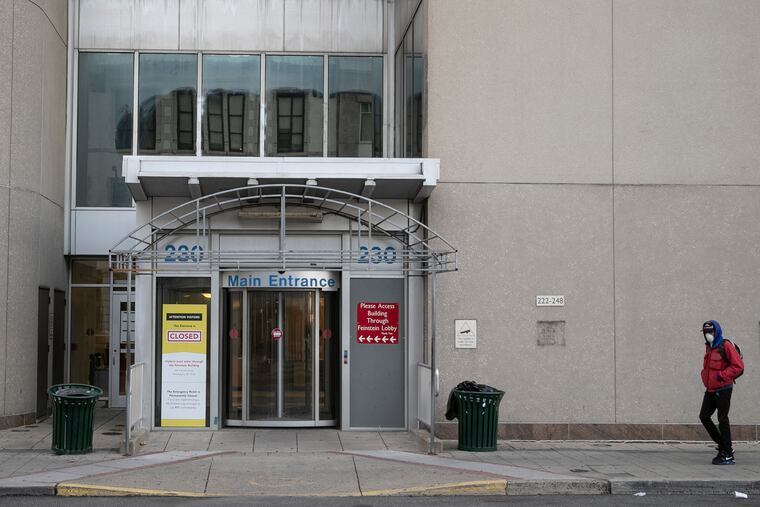Coronavirus requires drastic measures from all fronts | Editorial
Good intentions are not enough in responding to this crisis.

Individuals, businesses, governments, and institutions have been reeling for over a month trying to respond to the many ways the coronavirus has dismantled society. While some of those responses have been drastic, some have not been drastic enough.
With rising death rates and a shameful scarcity of facemasks, ventilators, test kits, and other basic supplies, it’s stunning how slow President Donald Trump has been to use the Defense Production Act that could force production of the items necessary. The president is leery of “nationalizing” businesses and has used the act to hold over companies as a threat without strategically using its powers. The act is not a weapon; it’s a tool that should be used.
» READ MORE: Why does Pennsylvania have so many more unemployment claims than even larger states?
When all this is over, there will be few perfect scorecards when it comes to which leaders have managed the scale and complexity of this crisis, but so far, the city of Philadelphia has, after an early delay, jumped into the proper level of urgent action, especially when it comes to dealing with socially and economically vulnerable populations. It was right to anticipate the surge in hospital beds needed when it eyed the former Hahnemann University Hospital as a potential resource. After Joel Freedman, the property’s owner, wanted more than the city could or would pay — $1 million a month — the city moved on to plan B. It should reserve the right to come back and enforce eminent domain if necessary. A more drastic measure would be for the owner to put aside the impulse to capitalize on a disaster.
The most drastic action a government can take is to relax the need for strict regulations and resort to its most fundamental responsibility: helping people survive, with food and shelter. Last week, Gov. Tom Wolf sent a letter to the U.S. Department of Agriculture, requesting it to relax some of its requirements in order to get food into the hands of those who need it most. The USDA has granted some, but many others are still pending.
Some waivers the agency recently granted include the “the ability for [food stamp] users to substitute whole grains in package sizes up to 24 oz when 16 oz are not available, and to substitute 18 count cartons of eggs when 12 count cartons are unavailable.”
That’s how far into the weeds the agency gets managing the vital nutrition assistance program. With millions suddenly out of work, these are weeds that too many people could choke on.
Speaking of drastic measures: Those who can afford to buy groceries in bulk should consider their neighbors who are using food stamps and are limited in the amounts and types of items they can buy. Leave enough basics for someone else.
The federal government’s speedy passage of the relief act was laudatory, but obstacles remain for many in getting the $1,200 checks that go to all those who file a tax return. There is no set policy yet for people who don’t file a tax return — which includes vulnerable recipients of Supplemental Security Income (SSI), VA, and TANF — who haven’t filed a return and have few avenues for getting help.
Good intentions are not enough in responding to this crisis.